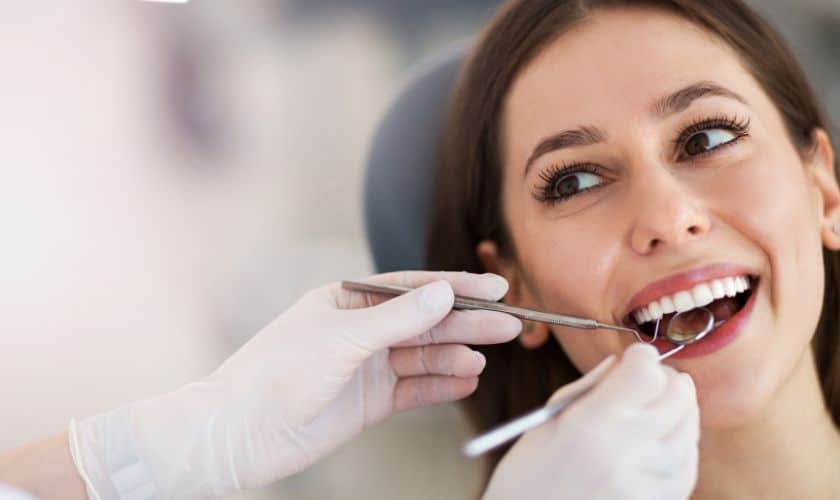Oral hygiene is the practice of keeping your mouth clean and free of disease. It encompasses brushing and flossing, along with regular visits to a dental professional for cleanings and examinations. A consistent oral care routine is fundamental for preventing common dental issues, like cavities, gum disease, and bad breath. Here’s information on maintaining your oral health between routine dentist visits:
What Is the Impact of Oral Health?
The health of your mouth is closely connected to your overall health. Neglecting oral hygiene can lead to the accumulation of harmful bacteria, which may contribute to infections and inflammation. Research has indicated associations between oral health status and various systemic conditions. Gum disease, like gingivitis or periodontitis, can contribute to cardiovascular issues, like heart disease and stroke.
Maintaining proper oral care is a key component of managing your general health, and can help reduce potential risk factors associated with other health conditions. Some health conditions may face a higher risk of developing teeth and gum issues, including:
- Diabetes
- Alzheimer’s Disease
- Osteoporosis
- HIV/AIDS
How Can You Improve Oral Hygiene?
Improving your daily oral care habits can enhance your health between professional dentist appointments. A combination of proper cleaning techniques, a balanced diet, and healthy lifestyle choices forms the foundation of effective oral hygiene. Making small yet consistent adjustments to your daily habits may lead to significant improvements in your oral health over time.
Brush & Floss Daily
Brushing your teeth twice a day with a fluoride toothpaste is key to removing plaque and food particles. Use a soft-bristled toothbrush and apply gentle, circular motions to clean all surfaces of your teeth. For optimal gum health, flossing once daily helps clean the tight spaces between your teeth and under the gumline, where bacteria accumulates. These daily habits help to prevent plaque buildup, which can harden into tartar and lead to gum inflammation.
Eat Foods Good for Your Teeth
Limiting your intake of sugary and acidic foods can help protect your enamel from erosion, preserving the strength of your teeth. After meals, wait at least 30 minutes before brushing your teeth. Acids from foods may remain after eating, and brushing too soon can be too rough on your enamel. Try incorporating crunchy fruits and vegetables into your diet, like apples and carrots, which help clean your teeth as you eat. Other foods that make up a balanced diet are:
- Plant-based Oils
- Healthy Fats
- Nuts
Stop Smoking
Tobacco use, in any form, is detrimental to your oral health. Smoking weakens your immune system, making it more difficult to combat gum infections. It also reduces blood flow to the gums, which may impair the healing process. Smokers are at a significantly higher risk of developing gum disease, and tobacco use leads to tooth discoloration, bad breath, and an increased risk of oral cancer. Ceasing tobacco use is an effective step you can take to improve both your oral and overall health.
Make Routine Visits to a Dentist
While daily home hygiene is invaluable, it does not replace the need for professional dental examinations and cleanings. Dentists can identify and address issues that you may not see or feel, like early signs of decay or gum disease. Professional cleanings remove tartar buildup that cannot be eliminated with regular brushing and flossing. Scheduling routine appointments with your dentist is necessary for maintaining long-term oral health and preventing complex dental problems. Visit a dentist for more health tips on preserving your smile.










